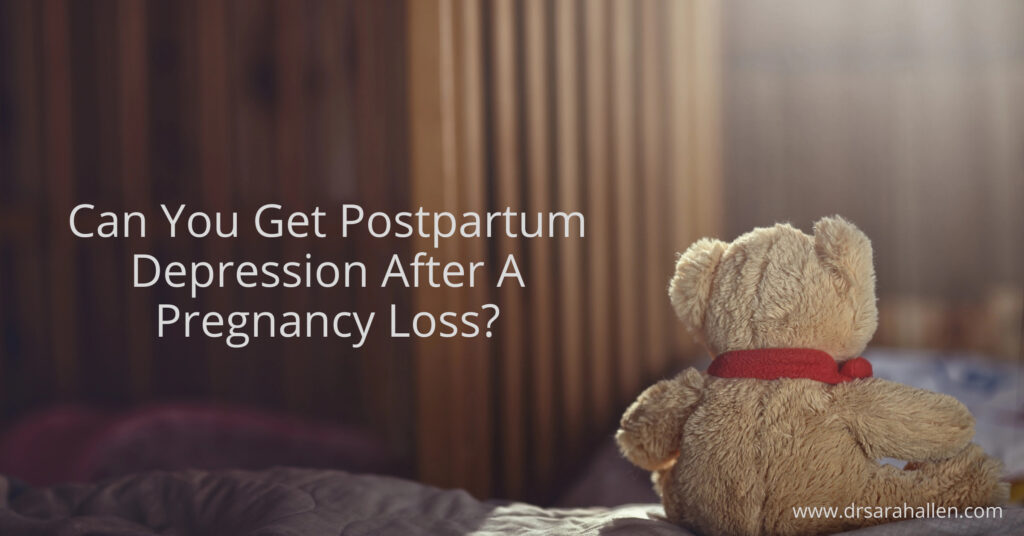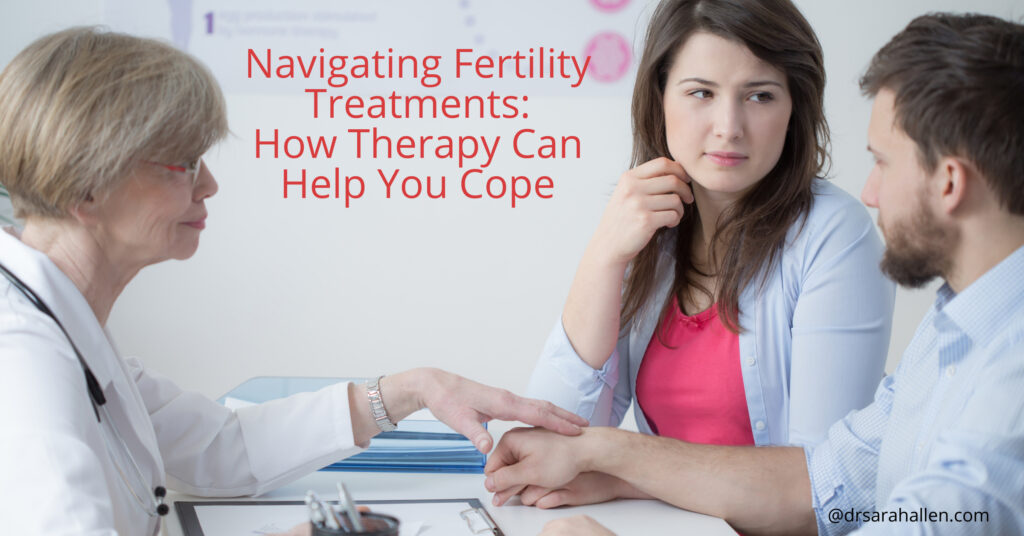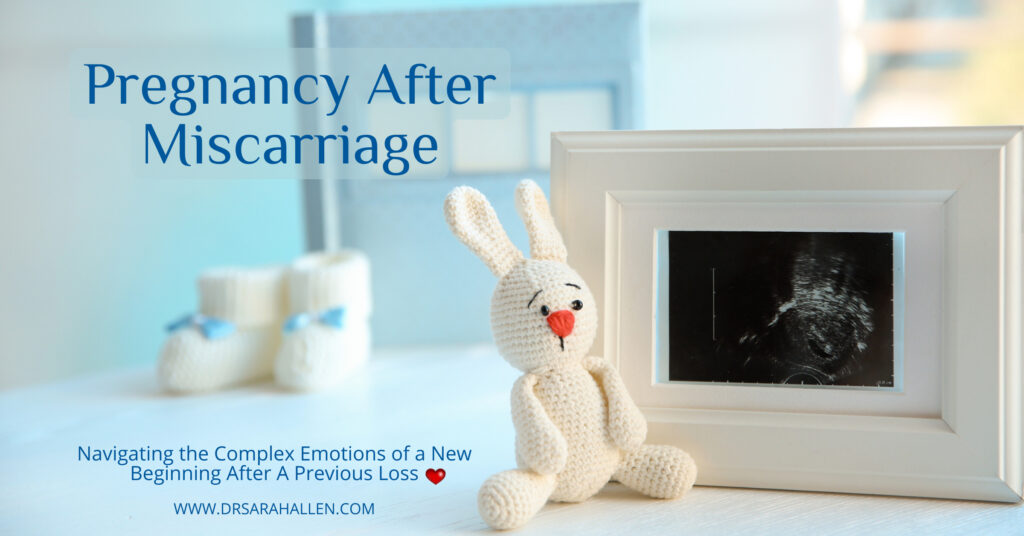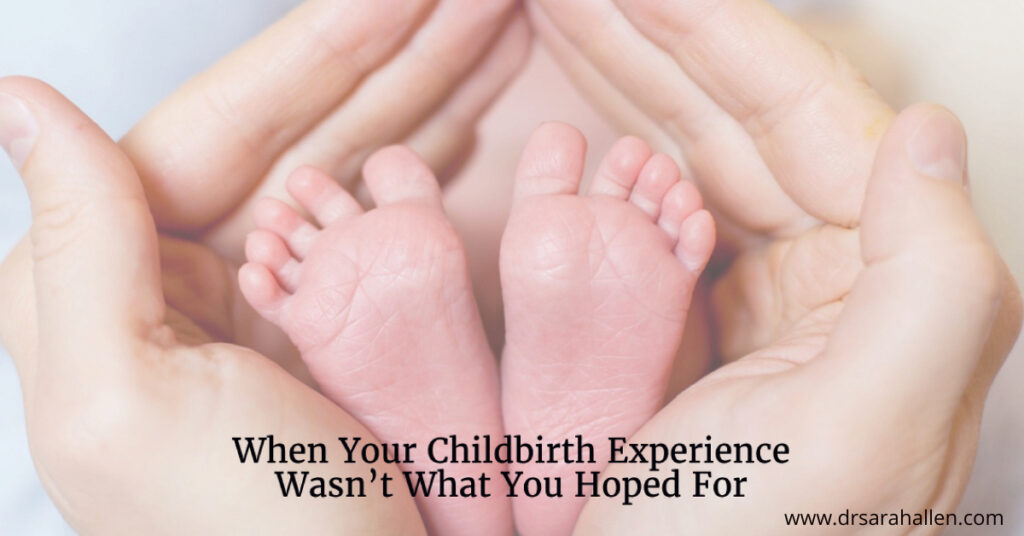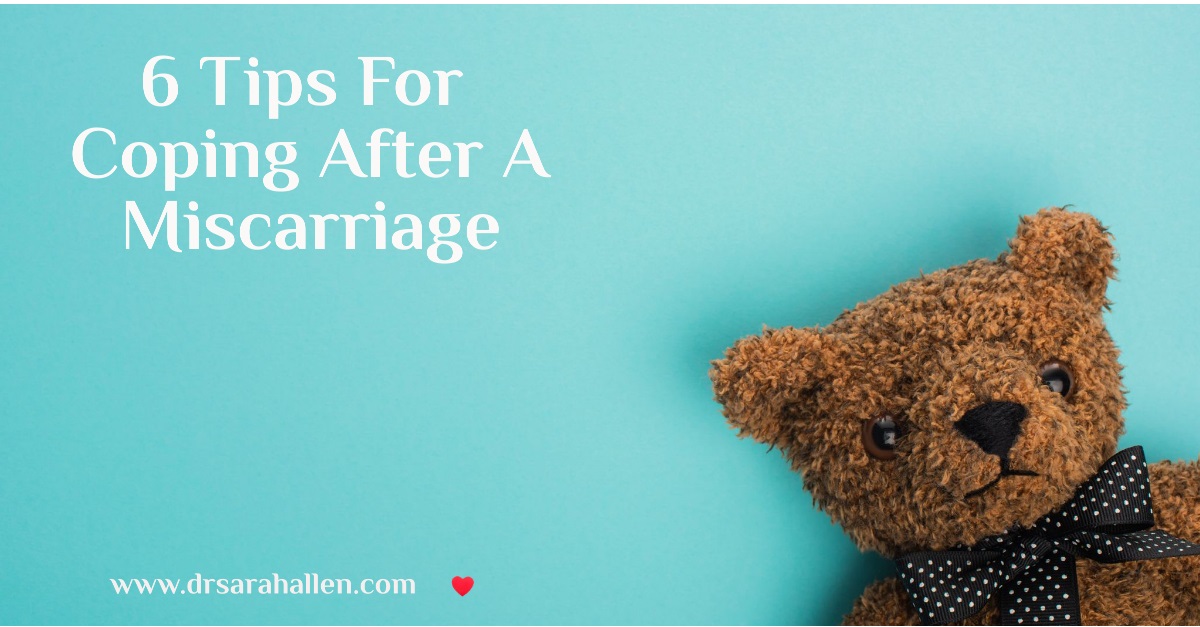
I expect you are reading this article because you, or a person close to you, has experienced a miscarriage or still birth. When you lose a baby, at whatever stage of development it was at, it can be totally devastating and it is normal to feel a mix of overwhelming emotions such as shock, numbness, grief, sadness, guilt, anger, as well as a sense of failure and vulnerability.
You began your journey as a mother as soon as you got a positive result on the pregnancy test. Perhaps you imagined what the baby was going to be like and of course, what is was going to be like to be their mother. These dreams are crushed with the loss, but just as every woman navigates their pregnancy in a unique way, processing grief and loss is a unique journey as well.
In this article I am going to share 6 tips that will hopefully help you in the process of healing from your loss.
1. Understand That It Not Your Fault

Pregnancy loss or complications can happen to anyone and is more common than you think, as many OB/GYNs do not prepare women about the possibility of miscarriage.
When someone experiences a pregnancy loss, they often try to understand what has happened by looking for a reason as to why it occurred and often thoughts are about what they could have done differently (or not done) to have prevented it from happening, but the truth is there’s probably nothing you could have done that would have made a difference.
The March of Dimes has some useful statistics listed on their website
- As many as half of all pregnancies may end in miscarriage. We do not know the exact number because an early miscarriage may happen before a woman knows she’s pregnant.
- Most women who miscarry go on to have a healthy pregnancy later.
- Miscarriage is usually a one-time occurrence.
- Most women who miscarry go on to have a healthy pregnancy after miscarriage. Less than 5% of women have two consecutive miscarriages, and only 1% have three or more consecutive miscarriages.
Early Miscarriage affects one in every four women with most early miscarriages happening in the first trimester due to chromosomal abnormality – meaning that something is not correct with the baby’s chromosomes. By the second trimester (between 13 and 19 weeks) miscarriages occur 1 in every 5 pregnancies.
Such losses, though common, are often invisible. Because many miscarriages occur early on in pregnancy, typically before a woman has even told people that she is expecting, women are often mourning their loss without much support. Even when loved ones know about the pregnancy, well-meaning people often fail to recognize the depth of emotions a loss can cause.
If the loss is after 20 weeks, it is called a stillbirth and the risk of this happening is lower, roughly to 1 in 160 pregnancies. For nearly half of all stillbirths the cause can be evaluated, but that means that in over 50% of cases cause cannot be determined, and we do know that there is no predictor of who will be affected by stillbirth and who won’t.
The takeaway from these statistics is that even if you carefully planned your pregnancy and did “everything right” you cannot have done anything to prevent your loss happening and you are not to blame.
2. Understand The Grieving Process You Are Going Through

Grieving is not a tidy process and we don’t really pass through the stages of grieving in a one stage follows another type of way. Typically, people jump back and forth between the stages for as long as the mind needs to, but the first stage of the grieving process is usually denial, “This isn’t happening, this can’t be happening”, where you may feel numb until your mind is able to start processing what has happened.
Next could come anger; perhaps directed towards those close to you, the medical professionals and/or yourself and your body. In my private practice where I work with women who have miscarried I often hear women say they are angry at their body for “letting them down” and not being able to do what other women seem to do easily. Or angry at medical staff who they felt were unhelpful or partners who don’t understand what a sense of loss they are feeling.
The bargaining stage is where the mind starts to try to understand why the miscarriage happened and is what we might have done to prevent it. “If only I had done xyz, this wouldn’t have happened.” This stage is closely tied up with blame and anger, but please remember, pregnancy complications and loss can happen to anyone, you didn’t cause this to happen by something you did or didn’t do!
Once someone begins to acknowledge to themself that a loss has happened, they might want to withdraw from everyone (depression stage) as they experience sadness, crying, shame and inadequacy or a sense of hopelessness.
Lastly, there is acceptance. Even though you feel sadness at the memory of what has happened, your thoughts are no longer consumed by what has happened. Although please remember that there isn’t a time frame for how long it takes to reach acceptance. Give yourself time to heal. Don’t pressure yourself to get past the sadness quickly. Allow yourself to deal with your grief as it comes.
There is no right or wrong way to deal with grief or trauma, but allow yourself to accept your feelings as they are right now and don’t judge yourself for how you are responding.
When we mourn the loss of a family member or friend, we have a shared past with that person with photos and memories of the shared experiences you had with the loved one. One way that grieving a miscarriage is different from other grieving is that it is a mourning of the loss of the story in where you imagined what your future child was going to be like and what you were going to be like as mother. I think that there is often a lack of recognition from the medical field and society in general about the depth of emotions miscarriage can bring. This can further heighten a woman’s feeling of isolation and belief that they are supposed to move on quickly.
3. Try Not To Close Yourself Off From Others.
If you don’t feel ready to face the world right after your loss, then don’t. It is totally okay to take some time off from work to focus on yourself. After a while though, try not to withdraw from others.
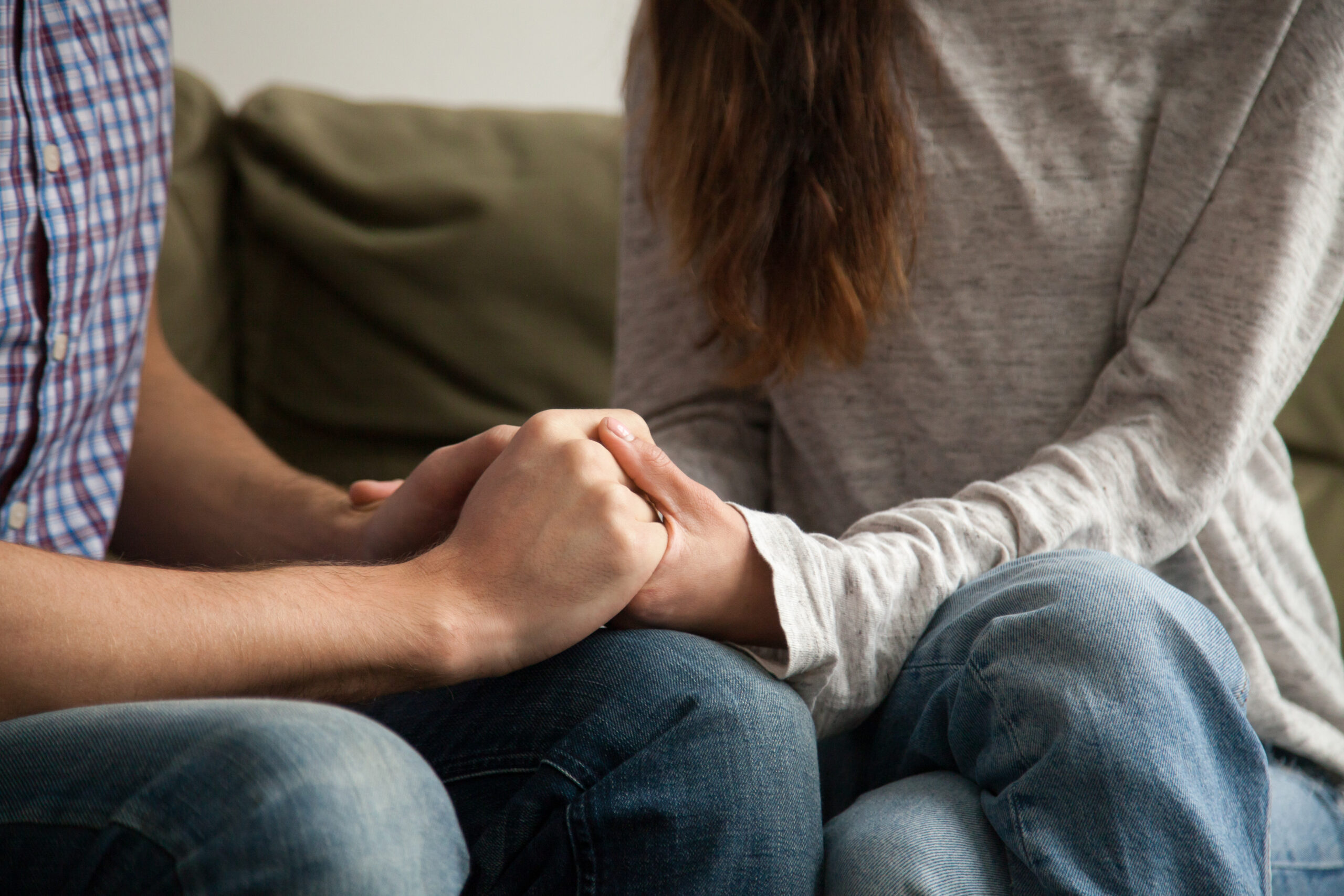
Although it may seem painful to talk about, sharing your story with others will allow you to feel less alone and help you heal. If you feel ready to open up about what has happened, you might be surprised by how many of your co-workers, neighbors, friends and even family members have also experienced their own losses.
Someone who has not gone through a loss probably can’t really know what it’s like to miscarry. Most people want to say something comforting, but might not know what to say and may even say something dismissive such as “You’re young, you can always try again”. Try not to take it personally if someone says the wrong thing or in some cases, says nothing at all because they do not know what to say.
Be honest with people about what you need. If you are back at work or out with friends, you might need to not talk about it for fear that you won’t be able to hold it together. Thank them for their condolences and say you can’t talk about it at the moment, but do talk to someone about your feelings, whether in a support group or to a friend that understands, rather than keeping all your feelings inside.
You may also want to seek out a therapist who specializes in pregnancy loss to help you cope with the difficult emotions you’re experiencing right now, and ultimately, to process and come to terms with your grief.
4. Look After Yourself Physically

Even when your world feels confusing and sadness makes ordinary tasks like eating and sleeping difficult, it is important to care for your physical health after a miscarriage because your body is vulnerable right now. You are recovering from all the hormonal and physical changes of pregnancy and you are grieving on top of that. The physical recovery and healing after a stillbirth can take longer as your body will go through the same hormonal and physical changes as if you had delivered a baby.
I do not think that the length of pregnancy before the loss changes the emotions and grief you go through afterwards. It is important to eat nutritious foods, drink plenty of fluids, and get enough rest as these are all part of nurturing your physically healthy so you can focus on your emotional health.
5. Writing Out Your Feelings Can Help
When someone has experienced a distressing event, the brain tries to make sense of what happened, but because it is distressing to think about your loss, you might be trying to push away the thoughts. Try not to avoid how you are feeling though, as it only festers and comes out at times you don’t want it to, typically as anger or anxiety. Schedule time to think and process what you experienced/ are still experiencing. One way to do this is through journaling.

Journal writing is a great way to explore your feelings and emotions and because a journal is private, you can allow yourself to reflect on just what it is that you are feeling and thinking without censoring yourself.
Studies have found that writing in a journal can speed up the recovery period during sad times. If you are finding it hard to stop thinking about what has happened, I find it is useful to set a short period of time, once or twice a day where you explore those feelings, then close the journal. When thoughts come into your mind at other times outside of journal writing time, tell them that you are going to deal with them later today, you don’t want to think about them right now. This puts a boundary around thinking so you’re not constantly ruminating about what has happened and what it might mean.
Tips for journaling: Find a place where you won’t be interrupted for fifteen minutes (or however long you decide). If you find it hard to get started or think you might not like writing, set aside a short amount of time i.e. five minutes, and write in bullet points or notes. Don’t worry about grammar, spelling, or sentence structure.
In your writing, try to be aware of your thoughts and feelings about your loss and remember, you are in charge of this process, there is no right or wrong way to do this but pace yourself. If you feel more distraught, ease up and write about a different aspect until you are ready to dig deep again.
Keep your mind focused on what is happening now and try to resist the urge to make predictions about what might happen in the future, particularly catastrophic ones.
Expect to feel negative emotions after a journaling session, but if you have been sitting deep in thought, change things up by moving your body, even if that just means cleaning up the kitchen while listening to a favorite song or going for a walk.
6. Understand Anxiety and PTSD Can Occur After A Loss

We know that most women experience some degree of psychological distress after a miscarriage, or a stillbirth and we have discussed the emotions that can arise during the grieving stages, but for some people the symptoms of anxiety and/or depression are more long lasting and can severely interfere with a person’s ability to function.
My blog post Types of Anxiety Disorders goes into more detail about all the different types of anxiety disorders, but the ones more commonly seen after pregnancy loss are generalized anxiety disorder (GAD), acute stress disorder (ASD), and post-traumatic stress disorder (PTSD).
Typical anxiety and depression symptoms following a pregnancy loss can include:
- Depressed or irritable mood for most of the day
- Anger outbursts or irritability
- Withdrawal from family and friends and other social interactions
- Difficulty falling and staying asleep
- Feelings of shame, guilt and inadequacy
- Difficulty concentrating and making decisions
- Coping with stress through unhealthy behaviors such as excessive drinking or eating
- Ruminating over what has happened
- Spending an excessive time online researching miscarriage and other health concerns
Generalized Anxiety Disorder (GAD) after a pregnancy loss is typically linked to fears that there is an underlying medical or genetic condition that may have caused the loss and worry that a future pregnancy will also end in loss.
Acute Stress Disorder (ASD) is directly associated with a traumatic event (the pregnancy loss) and can manifest within hours and lasts for at least two days, but no longer than four weeks. Symptoms of acute stress disorder may include:
- A sense of numbness or lack of emotional responsiveness
- Feeling dazed or outside of oneself
- Inability to recall aspects of the trauma
- Reliving the event through recurrent thoughts, dreams, or flashbacks
- Avoiding anything that is a reminder of the miscarriage
- Persistent edginess and/or distress
The symptoms of PTSD are similar to ASD, but they last longer than four weeks.
- Intrusive re-experiencing of a past traumatic event (which in this case may have been the childbirth itself)
- Flashbacks or nightmares (which can be about the events leading up to, during or shortly after labor)
- Avoidance of stimuli associated with the event, including thoughts, feelings, people, places and details of the event (frequently this involves avoidance of the hospital or doctors’ office, magazines about childbirth, other new moms)
- Persistent increased arousal (irritability, difficulty sleeping, hypervigilance, exaggerated startle response)
- Anxiety and panic attacks
- Feeling a sense of unreality and detachment
The severity of continued psychological distress has no association with the number of weeks a person was pregnant and can equally affect women who have experienced an early miscarriage or stillbirth. An interesting study from the Imperial College in London, found that among 186 women who experienced an early pregnancy loss, 28 percent met the criteria for PTSD after three months of follow-up.
Whether you are impacted by continued anxiety, depression, or stress disorders, it is important to remember that you are not alone in going through this and professional support can really help you move forward. Healing doesn’t mean forgetting what happened, it is more about accepting that your loss occurred and then starting to be present in your life again rather than trapped in the past or in fear of the future.
I hope you have found this information helpful in taking steps to heal. Looking after your emotional health is as important as your physical health. Allow yourself to grieve, acknowledge what you are feeling without self-criticism or blame and when you are ready, find support from talking to others who have also experienced pregnancy loss.
Everybody’s journey is different, but please allow yourself time to grieve for what might have been and process what has happened. If you are experiencing fears, sadness or trauma reactions that are affecting your daily functioning and you feel stuck, don’t be afraid to reach out for professional help. If you are not in a state I am licensed in (Illinois or Florida), your doctor will be able to refer you to local mental health professionals who have specialist training in treating loss and trauma resulting from miscarriage and stillbirth.
Dr. Sarah Allen has 20+ years experience as a therapist helping women during their reproductive years to look after themselves while they develop practical tools to feel back in control after a miscarriage, stillbirth or when going through infertility treatment. We all need a little support sometimes. You don’t need to feel alone.

I specialize in empowering women to live the life they want. If you would like to work with me, please phone me at 847 791-7722 or on the form below.
If you would like to read more about me and my areas of specialty, please visit Dr. Sarah Allen Bio. Dr. Allen’s professional license only allows her to work with clients who live in IL & FL & the UK and unfortunately does not allow her to give personalized advice via email to people who are not her clients.
Dr. Allen sees clients in person in her Northbrook, IL office or remotely via video or phone.

What Can I Read That Helps Me While I Am Waiting For My First Appointment With Sarah?
I have written five other booklets that you might find interesting: Simple Steps To Overcome Depression, Simple Steps To Overcome Emotional Eating, Guide To Pregnancy & Postpartum Issues, Simple Steps To Overcome Anxiety, and How To Stop Arguing With Your Child.
See each specific webpage to download one or many.


